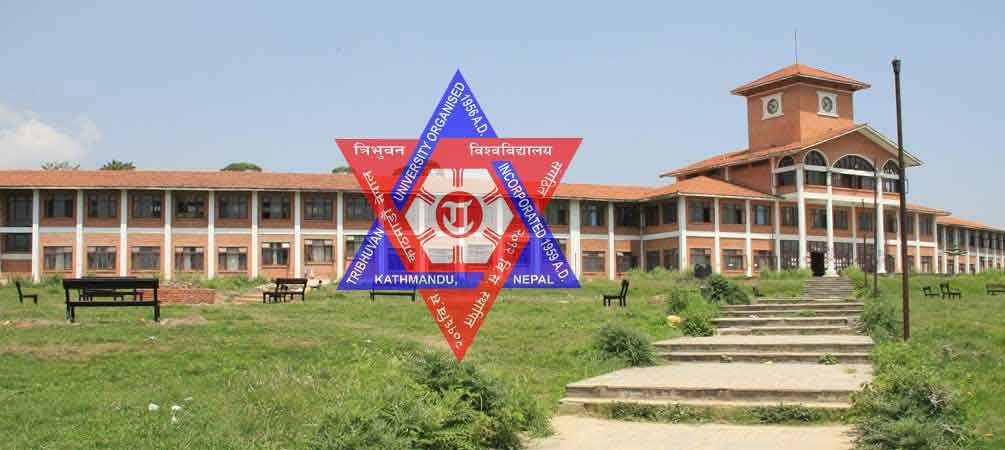
Supreme Court Orders Immediate Reopening of Tribhuvan University Offices
The Supreme Court has issued an interim order to immediately reopen the locked offices at Tribhuvan University (TU). This order was issued in response to a writ petition filed by Advocate Mahesh Bhattarai. The single bench of Justice Nripadhwaj Niraula issued the directive.
Since Jestha 14 and Jestha 30, the offices of the Vice-Chancellor, Rector, Registrar, and TU Service Commission have remained locked. The writ demanded the removal of the lock, leading to the court’s order for immediate reopening.
According to TU’s legal advisor, Narayan Prasad Khanal, the Supreme Court’s interim order has been formally directed to the Ministry of Home Affairs, Nepal Police Headquarters, District Administration Office, and Kirtipur Police Circle to ensure reopening.
Background of the Lockdown and Protests
The Central Struggle Committee of Part-Time Professors at TU has enforced the lockdown since Jestha 30. Before that, on Jestha 14, student union leaders from various colleges within the Kathmandu Valley affiliated with the Nepal Student Union (NSU) had vandalized and locked the Vice-Chancellor’s office.
Operational Disruption at TU
The lockdown has paralyzed TU’s administrative operations. In response, TU formed a dialogue committee under the coordination of Dr. Dilip Parajuli to negotiate with the protesting professors. The committee held three rounds of talks but failed to reach a resolution.
Core Issues Behind the Protest
Tribhuvan University has faced over a month of disruption due to the protests and lockdown. Key administrative offices, including those of the Vice-Chancellor, Rector, Registrar, and TU Service Commission, have been non-functional.
The Central Struggle Committee of Part-Time Professors began protesting, demanding the implementation of past agreements and the cancellation of the fast-track professor recruitment process.
Impact on TU Leadership and Operations
Due to the lockdown, senior officials, including Vice-Chancellor Prof. Dr. Khadka KC, Rector Prof. Dr. Duvinanda Dhakal, Registrar Prof. Dr. Kedar Prasad Rijal, and TU Service Commission Chairperson Prof. Dr. Ghanshyam Bhattarai, have not been able to access their offices for the past two weeks.
With leadership unable to enter their offices, policy decisions, administrative tasks, and daily operations have been severely affected. Some officials and staff have relocated their operations to alternative locations, such as the Dean's Office at the Institute of Engineering, Pulchowk.
Earlier Vandalism by Student Leaders
On Jestha 14, student union leaders affiliated with NSU vandalized and locked the Vice-Chancellor's office. That lock remains unopened. The continued disruption has left the university in a state of administrative limbo.
Stalled Negotiations
Though TU formed a negotiation team under Dr. Parajuli, three formal rounds of talks with the protesting professors failed to yield results. Both sides have remained firm in their positions, leading to a breakdown in talks.
The protesting professors demand the full implementation of a previous task force report and the cancellation of the fast-track recruitment advertisement.
TU’s Position on the Demands
TU has maintained that not all demands can be addressed immediately, citing legal and procedural complexities. Nonetheless, the Supreme Court has ordered the reopening of the locked premises.
Protesters' Standpoint: No Compromise Without Fast-Track Cancellation
Gokul Limbu, Chair of the Central Struggle Committee, said that the possibility of a negotiation outcome is weakening due to TU’s unwillingness to be flexible on key demands.
“We held three rounds of talks, but every time it stalled at the same point,” said Limbu.
Although TU has shown a theoretical willingness to implement the task force report, Limbu said the administration hasn’t fully committed. “We just want them to implement what the task force has already decided,” he added.
Major Sticking Point: Fast-Track Appointments
The primary issue is the recruitment of 130 professors through a fast-track process. Limbu argued that the process is legally flawed and cannot move forward. He demanded that seats allocated for fast-track appointments be adjusted under the regular and open competition system.
“We demand the cancellation of the fast-track system and the inclusion of those seats in a unified public advertisement, even if it means postponing current regular exams,” Limbu clarified.
TU Administration’s Response
Vice-Chancellor KC stated that continuous dialogue has been maintained, but meeting all demands immediately is not feasible. He explained that a formal negotiation team has been working for 10–12 days.
KC also acknowledged the difficulty in implementing every recommendation of the task force report word-for-word. “We’ve communicated what we can and cannot do,” he said.
He also emphasized that his current term is transitional and that a full-term Vice-Chancellor should be responsible for making permanent appointments and long-term decisions. “This is a transitional period, and we can’t make all the decisions,” KC noted.
Lingering Disruption and Institutional Impact
There is no clear indication that the lockdown will end soon. With NSU-led vandalism on one side and protests from part-time professors on the other, TU’s academic environment and reputation have suffered significantly.
Two NSU members involved in the vandalism were arrested but were released within a few days without prosecution.
Fast-Track Recruitment Details
TU is attempting its first large-scale fast-track professor appointment:
-
10 Professors
-
20 Associate Professors
-
100 Assistant Professors
The recruitment will be interview-based without a written examination.
Eligibility Standards for Fast-Track Professors
According to former TU Service Commission Chair and TU Executive Council Member Prof. Dr. Lalu Prasad Poudel, the eligibility criteria for fast-track positions include:
-
PhD in the relevant research specialization
-
Research articles published in national or international peer-reviewed journals
TU held a press conference to outline these requirements. Vice-Chancellor KC stated that these appointments would lay the foundation for the university’s academic future.
Additional Selection Requirements
Candidates must have:
-
Published books in their respective subjects
-
Registered original research or innovation
TU argues this ensures that only long-serving, capable, and research-oriented professionals are selected. The university has requested the public to trust the credibility, qualifications, and expertise of the selected professors.
Previous Recruitment Based on Research Specialization
TU previously announced research-based vacancies on Ashoj 5, 2073, and Poush 3, 2076. This latest recruitment follows those successful models.


